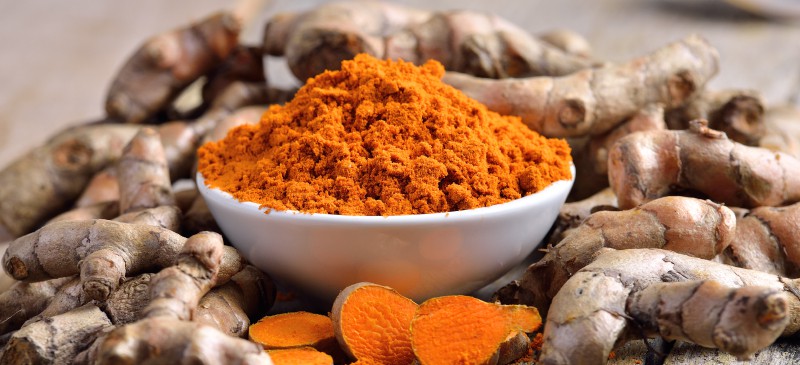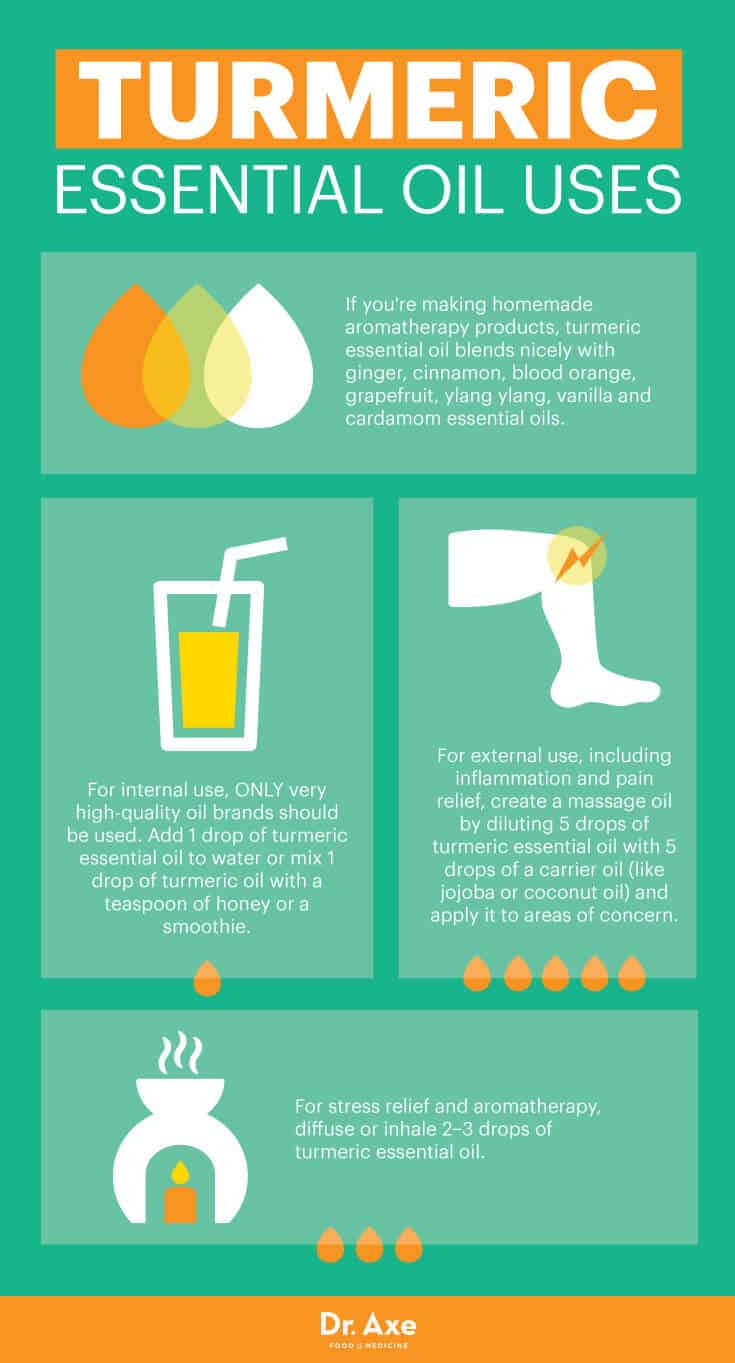This Dr. Axe content is medically reviewed or fact checked to ensure factually accurate information.
With strict editorial sourcing guidelines, we only link to academic research institutions, reputable media sites and, when research is available, medically peer-reviewed studies. Note that the numbers in parentheses (1, 2, etc.) are clickable links to these studies.
The information in our articles is NOT intended to replace a one-on-one relationship with a qualified health care professional and is not intended as medical advice.
This article is based on scientific evidence, written by experts and fact checked by our trained editorial staff. Note that the numbers in parentheses (1, 2, etc.) are clickable links to medically peer-reviewed studies.
Our team includes licensed nutritionists and dietitians, certified health education specialists, as well as certified strength and conditioning specialists, personal trainers and corrective exercise specialists. Our team aims to be not only thorough with its research, but also objective and unbiased.
The information in our articles is NOT intended to replace a one-on-one relationship with a qualified health care professional and is not intended as medical advice.
Turmeric Essential Oil Benefits in the Fight Against Cancer
October 11, 2018

Turmeric oil is derived from turmeric, which is well-known for its anti-inflammatory, antioxidant, anti-microbial, anti-malarial, anti-tumor, anti-proliferative, anti-protozoal and anti-aging properties. (1) Turmeric has a lengthy history as a medicine, spice and coloring agent. Turmeric essential oil is an extremely impressive natural health agent just like its source — one that appears to have some of the most promising anti-cancer effects around. (2)
Turmeric benefits also come from its health-promoting vitamins, phenols and other alkaloids. Turmeric oil is considered to be a strong relaxant and balancer to the body. According to Ayurvedic medicine, this incredible herbal remedy is meant to support the imbalance of Kapha body type.
Given all of these beneficial components, it’s no surprise turmeric essential oil has been shown to hold the following health benefits.
10 Turmeric Essential Oil Benefits
Are you asking yourself, “What is turmeric good for?” Turmeric health benefits are truly amazing, ranging from working as a potential cancer-fighting food to an essential oil for depression. Here are some of the most impressive ways turmeric essential oil can improve your health or the health of someone you know.
1. Helps Fight Colon Cancer
A 2013 study conducted by the Division of Food Science and Biotechnology, Graduate School of Agriculture at Kyoto University in Japan showed that the aromatic turmerone (ar-turmerone) in turmeric essential oil as well as curcumin, the main active ingredient in turmeric, both displayed the ability to help fight colon cancer in animal models, which is promising for humans struggling with the disease. The combination of curcumin and turmerone given by mouth at both low and high doses actually abolished tumor formation.
Study results published in BioFactors led researchers to the conclusion that turmerone is “a novel candidate for colon cancer prevention.” Additionally, they think that using turmerone in combination with curcumin may become a potent means of natural prevention of inflammation-associated colon cancer. (3)
2. Helps Prevent Neurologic Diseases
Studies have shown turmerone, a major bioactive compound of turmeric oil, inhibits microglia activation. Microglia are a type of cell located throughout the brain and spinal cord. Activation of microglia is a tell-tale sign of brain disease so the fact that turmeric essential oil contains a compound that stops this harmful cell activation is hugely helpful for the prevention and treatment of brain disease. (4)
Another study using animal subjects showed both in vitro and in vivo aromatic turmerone causes neural stem cells to rapidly increase in number. Turmeric essential oil’s aromatic turmerone is believed to be a promising natural way to support the regeneration necessary to improve neurologic diseases like Parkinson’s disease, Alzheimer’s disease, spinal cord injury and stroke. (5)
3. Potentially Treats Epilepsy
The anticonvulsant properties of turmeric oil and its sesquiterpenoids (ar-turmerone, α-, β-turmerone and α-atlantone) have previously been shown in both zebrafish and mouse models of chemically-induced seizures. More recent research in 2013 has shown that aromatic turmerone has anticonvulsant properties in acute seizure models in mice. The turmerone was also able to modulate the expression patterns of two seizure-related genes in zebrafish. (6)
4. Aids in Reducing Arthritis and Joint Issues
Traditionally, turmeric has been used in Chinese and Indian Ayurvedic medicine to treat arthritis since turmeric’s active components are known to block inflammatory cytokines and enzymes. That’s why it’s known as one of the best essential oils for arthritis around.
Studies have shown turmeric’s ability to help reduce pain, inflammation and stiffness related to rheumatoid arthritis and osteoarthritis. One study published in the Journal of Agricultural and Food Chemistry evaluated the anti-arthritic effects of turmeric essential oil and found that crude turmeric essential oil given orally at a dose that would correspond to 5,000 milligrams per day in humans had a modest anti-inflammatory effect on the joints of animal subjects. (7)
5. Improves Liver Health
Turmeric is well-known in the holistic health world for its ability to help improve liver health. The liver is our most vital detoxifying organ, and its condition affects the entire body. Studies have shown that turmeric is hepatoprotective (liver-protective), which is partly due to turmeric’s anti-inflammatory activity. Some research published in BMC Complementary & Alternative Medicine specifically looked at methotrexate (MTX), an antimetabolite broadly used in the treatment of cancer and autoimmune diseases, and the liver toxicity caused by MTX. The study showed turmeric helped protect the liver from MTX-induced liver toxicity, working as a preventative liver cleanse. The fact that turmeric could protect the liver from such a strong chemical goes to show just how incredible it can be as a natural liver aid. (8)
Additionally, animal studies have shown that antioxidant enzymes in the blood and serum of subjects were increased after administration of turmeric oil. Turmeric oil also showed a significant effect on the antioxidant enzymes in liver tissue of mice after treatment for 30 days. (9) All of this combined contributes to why turmeric is believed to both help treat and prevent liver disease.
6. Helps Combat Breast Cancer
Research published in the Journal of Cellular Biochemistry showed that the aromatic turmerone found in turmeric essential oil inhibited undesirable enzymatic activity and expression of MMP-9 and COX-2 in human breast cancer cells. Turmerone also significantly inhibited TPA-induced invasion, migration and colony formation in human breast cancer cells. It’s a highly significant finding that components of turmeric essential oil can inhibit TPA’s abilities since TPA is a potent tumor promoter. (10)
7. May Reduce Some Leukemia Cells
One study published in the International Journal of Molecular Medicine looked at the the effects of aromatic turmerone isolated from turmeric on the DNA of human leukemia cell lines. The research showed that the turmerone caused selective induction of programmed cell death in human leukemia Molt 4B and HL-60 cells. However, the turmerone unfortunately did not have the same positive effect on human stomach cancer cells. This is promising research for ways to naturally fight leukemia. (11)
8. Relieves Depression and Anxiety
Turmeric essential oil is considered to be a strong relaxant and balancer, and studies have shown it can help fight against two extremely common mood disorders, depression and anxiety. As an effective essential oil for anxiety and depression, it may improve mood and positive feelings.
A randomized, double-blind, placebo-controlled study of 56 individuals with major depressive disorder was published in 2014 in the Journal of Affective Disorders. Results from the study showed supplementation with BCM-95 curcumin not only successfully reduced the overall symptoms of depression, but it also worked as an anti-anxiety agent when taken over a period of eight weeks. BCM-95 curcumin is manufactured by synergistically combining curcumin and essential oil of turmeric without synthetic additives. (12, 13)
Another more recent study published in 2018 looked at the effects of BCM-95 curcumin and saffron on 123 individuals with major depressive disorder. Overall, the randomized, double-blind, placebo-controlled study found that individuals treated twice daily with a low dose (250 milligrams) of BCM-95 curcumin, high dose (500 milligrams) of BCM-95 or a combined low dose (15 milligrams) of the curcumin and saffron for 12 weeks were all effective in decreasing depression and anxiety symptoms in people with major depressive disorder. (13, 14)
9. Improves the Common Cold
Turmeric essential oil’s anti-inflammatory and anti-microbial ability can really come in handy for the nasal congestion that typically accompanies the common cold. Simply add a few drops of turmeric oil to a diffuser or bowl of hot water and inhale the vapors to quickly alleviate that stuffy nose. Inhaling turmeric essential oil also helps fight the germs that caused your cold in the first place.
10. Boosts Skin Health
Is turmeric oil good for face? It definitely can be! So what are the benefits of turmeric on skin? Many people use turmeric oil for skin lightening, which is a great idea because using turmeric topically has been shown to decrease the appearance of facial hyperpigmentation as well as fine lines and wrinkles. With its anti-inflammatory and antibacterial properties, it can also be helpful as a natural acne treatment. (15, 16) Just remember you want to use a very small amount of diluted turmeric oil to avoid temporarily staining your skin yellow.
Turmeric Essential Oil Plant Origin and Chemical Composition
What is turmeric exactly? Turmeric (Curcuma longa) is a perennial herbaceous plant of the ginger family (Zingiberaceae). The turmeric plant grows to a height of about three feet and has yellow flowers. The root is bright orange with a thin brownish skin. Native to southern India and Indonesia, turmeric is cultivated on the mainland and in the islands of the Indian Ocean.
Turmeric essential oil is derived from the plant’s tuberous rhizomes, or underground roots. The essential oil is typically obtained from the turmeric root through CO2 or steam distillation using the solvent hexane. You ideally want a turmeric oil that is CO2-extracted. Turmeric essential oil is yellow in color and has an interesting scent that can be described as sweet and woody with notes of spice.
The most abundant components of turmeric essential oil are aromatic turmerone (25.3 percent), a-tumerone (18.3 percent) and curlone (12.5 percent). Other constituents include caryophyllene (2.26 percent), eucalyptol (1.60 percent) and a-phellandrene (0.42 percent). (17) These components of turmeric essential oil make it extremely potent when it comes to naturally fighting an impressive variety of serious health concerns.
Turmeric Essential Oil History and Interesting Facts
The use of turmeric dates back nearly 4,000 years to the Vedic culture in India, where it was used in cooking as well as religious ceremonies. Turmeric most likely reached China by 700 A.D., East Africa by 800 A.D., West Africa by 1,200 A.D. and Jamaica in the 18th century.
In 1280, Marco Polo described turmeric and was impressed that it exhibited qualities very similar to that of saffron. The plant was called Indian saffron during the Middle Ages because of its orange-yellow color.
According to Sanskrit medical treatises and Ayurvedic and Unani systems, turmeric has a long history of medicinal use in South Asia. Topically speaking, turmeric essential oil is traditionally used as an antiseptic and in natural skin care to discourage acne and facial hair in women. You can also mix a carrier oil like coconut oil with a drop or two of turmeric oil for hair and scalp concerns like dryness and dandruff.
Present day, turmeric is widely cultivated in the tropics and goes by many different names in various cultures and countries. The name turmeric derives from the Latin word terra merita (“meritorious earth”), referring to the color of ground turmeric, which resembles a mineral pigment. (18)
How to Choose and Use Turmeric Essential Oil
Turmeric essential oil is available in health stores and online and is very affordable! Don’t be deceived by the size of the bottle — turmeric essential oil is very potent, and a little goes a long way.
Look for a turmeric essential oil that is CO2-extracted, which means it’s extracted with as little heat as possible. CO2 extraction also doesn’t involve using any chemicals like hexane or ethanol.
If you’re making homemade aromatherapy products, it’s helpful to know that turmeric essential oil blends nicely with ginger, cinnamon, blood orange, grapefruit, ylang ylang, vanilla and cardamom essential oils.
- For stress relief and aromatherapy: diffuse or inhale two to three drops of turmeric essential oil.
- For skin: Add one to two drops of turmeric oil to face washes, skin lotions, serums and face masks for an added antiseptic and anti-inflammatory boost. And remember that it can also help with hyper-pigmentation of the skin.
- For external use, including inflammation and pain relief: create a massage oil by diluting five drops of turmeric essential oil with five drops of a carrier oil (like jojoba or coconut oil) and apply it to areas of concern.
- For internal use: Only very high-quality oil brands should be used internally, which means a USDA-certified organic turmeric oil that is 100 percent pure and therapeutic grade. Add one drop of turmeric essential oil to water or mix one drop of turmeric oil with a teaspoon of honey or a smoothie. This is an easy alternative to taking turmeric oil capsules.
Always store turmeric essential oil in a cool, dark place.
Turmeric Essential Oil Recipes
Is your complexion dull or problematic? If so, try using one drop of turmeric essential oil in place of turmeric powder in this turmeric face mask for glowing skin. Similarly, for this homemade muscle rub, you can substitute four drops of turmeric essential oil for two teaspoons of turmeric powder. This is a great topical remedy for sore joints and muscles.
Want to try a turmeric tea that’s not only super satisfying, but also highly medicinal? If you have a high-quality turmeric essential oil, you can try using one drop of turmeric essential oil in place of turmeric powder in this turmeric tea recipe.
Wondering how to make turmeric oil yourself? You can try making a homemade turmeric oil recipe, but I have to warn you that it’s not going to be equivalent to a professionally made turmeric essential oil. A homemade turmeric oil will basically be a a carrier oil (such as olive oil) that contains or is infused with some turmeric root. A true turmeric essential oil is not dissolved at all and is much more pure and potent.

Turmeric Essential Oil Possible Side Effects and Caution
As with all essential oils, turmeric essential oil should not be used undiluted, in the eyes or in other mucus membranes. Don’t take turmeric oil internally unless you’re working with a qualified and expert practitioner. Before applying any essential oil to your skin, always perform a small patch test after diluting the essential oil in a carrier oil.
Consult your healthcare provider before using turmeric essential oil if you’re pregnant, nursing, taking medication or being treated for any health condition, especially bleeding problems, gallbladder problems, diabetes, infertility, iron deficiency, GERD or hormone-sensitive conditions such as breast cancer, uterine cancer, ovarian cancer, endometriosis or uterine fibroids. Turmeric is known to possibly interact with drugs that slow blood clotting. Stop using turmeric products at least two weeks before any scheduled surgery. (19)
Is turmeric essential oil toxic? As with any essential oil, it can be toxic if it is misused. You also need to make sure you purchase a 100 percent pure turmeric essential oil that has not been adulterated with any other potentially toxic ingredients.
In general, turmeric typically doesn’t cause any significant side effects. However, some people can experience stomach upset, nausea, diarrhea or dizziness after taking turmeric supplements. (19)
One other negative turmeric side effect is its ability to stain clothes and skin, whether you use the spice or the oil. Turmeric essential oil is yellow just like the spice and can easily and permanently dye your clothing. It can also temporarily leave your skin looking yellow. It might take a few washings, but the color will leave your skin. Wiping the stained area with coconut oil or lemon juice can help remove any skin staining more quickly.
Turmeric essential oil, like many other essential oils, also can make your skin more sensitive to UV light, so use caution. In general, essential oils should be kept away from children and pets.
Turmeric Essential Oil Takeaways
- Turmeric essential oil is considered a strong relaxant and balancer.
- According to Ayurveda, this energizing herb is meant to support the imbalance of Kapha body type.
- What is turmeric essential oil used for? Truly, so many things:
- The essential oil of turmeric has been shown to help fight against breast and colon cancer as well as leukemia.
- Turmeric oil has been shown to stimulate regeneration of cells in the brain, making it effective at improving neurologic diseases like Parkinson’s, Alzheimer’s, spinal cord injury and stroke.
- Turmeric essential oil can help you recover from the common cold through the use of aromatherapy (inhalation of the oil).
- The essential oil of turmeric has shown potential as a natural epilepsy treatment.
- Studies have shown that curcumin and turmeric essential oil successfully reduce the overall symptoms of depression and also work as an anti-anxiety agent when taken over a period of eight weeks.
- The liver can greatly benefit from turmeric essential oil’s protective and anti-inflammatory abilities.
- Turmeric essential oil can be used topically to help soothe joint and muscle aches and even arthritis.
- Turmeric essential oil is used both topically and internally. In either case, but especially when used internally, the oil needs to be of very high-quality and used sparingly in small dosages (one drop of essential oil).
- Always purchase turmeric oil that is 100 percent pure, USDA-certified organic and therapeutic grade.

